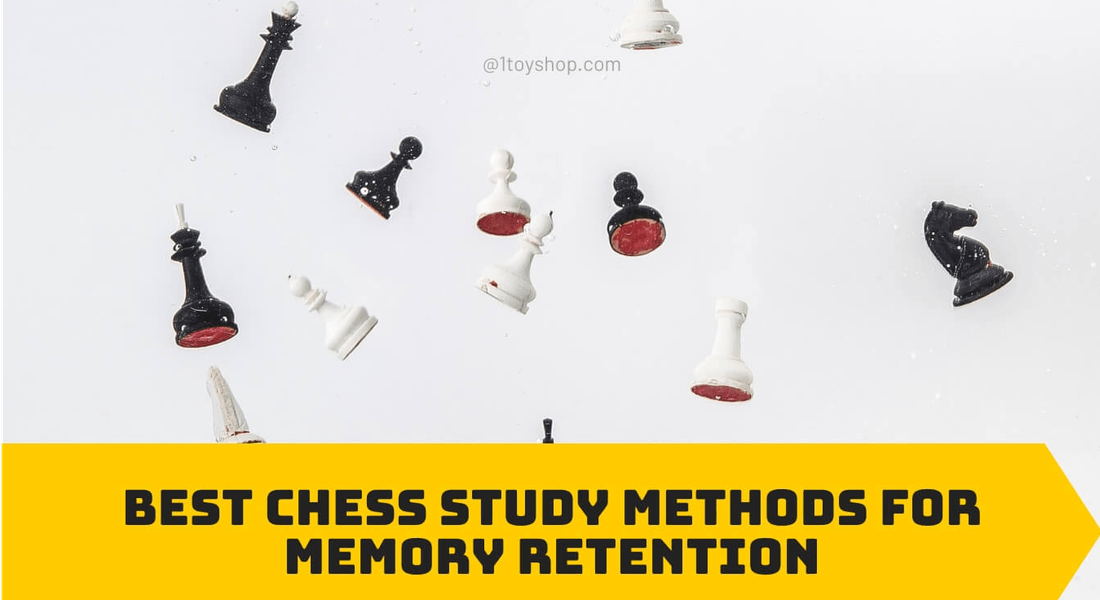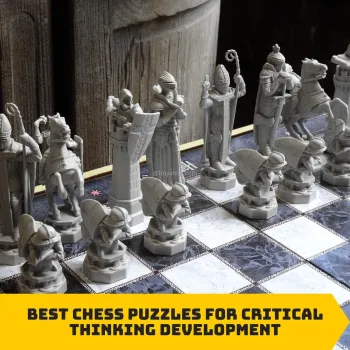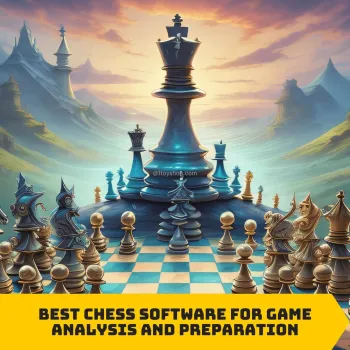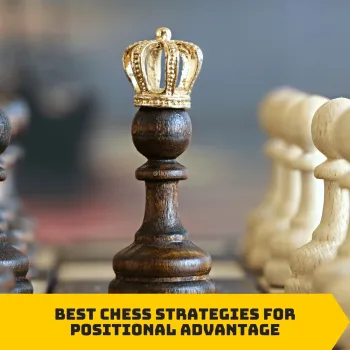
To Get More Wonderful Toys And Take Discount Today. Click On The Image.
Chess, often called the game of kings, is a fascinating pursuit that challenges the mind and sharpens cognitive abilities. Whether you're a beginner or an experienced player, improving your chess skills requires dedicated study and practice. In this blog post, we'll explore some of the best chess study methods that not only enhance your gameplay but also promote long-term memory retention. These techniques will help you internalize chess concepts, patterns, and strategies, allowing you to recall and apply them effectively during your matches.
The Importance of Structured Learning in Chess
Building a Strong Foundation
To truly excel in chess, it's crucial to approach your learning in a structured manner. This means starting with the basics and gradually progressing to more complex concepts. A solid foundation in chess fundamentals will serve as the bedrock for all your future chess endeavors.
Learn piece movements and basic rules thoroughly
Understand the value of each piece
Study basic checkmate patterns
Familiarize yourself with common chess terminology
Creating a Study Plan
Developing a consistent study routine is key to improving your chess skills and retaining information. Set aside dedicated time each day or week for chess study, and stick to your schedule. This disciplined approach will help you make steady progress and reinforce your learning.
"Chess is a marathon, not a sprint. Consistent, focused study is the key to long-term improvement." - Anonymous Chess Grandmaster
Effective Chess Study Techniques
Analyze Master Games
One of the most valuable study methods in chess is analyzing games played by masters and grandmasters. This practice exposes you to high-level strategies, tactical combinations, and positional play.
Choose games relevant to your skill level and interests
Study the game move by move, trying to understand the reasoning behind each decision
Pay attention to key turning points in the game
Take notes on interesting ideas or patterns you observe
Solve Chess Puzzles Regularly
Solving chess puzzles is an excellent way to sharpen your tactical awareness and pattern recognition. This practice helps you identify common motifs and combinations that can arise in your own games.
Start with puzzles appropriate for your skill level
Gradually increase the difficulty as you improve
Focus on understanding the underlying principles, not just finding the correct move
Review puzzles you've solved previously to reinforce your learning
Use Spaced Repetition for Openings
When studying chess openings, employ the spaced repetition technique to enhance long-term memory retention. This method involves reviewing information at increasing intervals over time.
Create flashcards for key opening positions and variations
Review new material frequently at first, then gradually increase the time between reviews
Focus on understanding the ideas behind the openings, not just memorizing moves
Leveraging Technology for Chess Improvement
Chess Software and Databases
Modern chess software and databases offer powerful tools for study and analysis. These resources can significantly enhance your learning experience and help you retain information more effectively.
Use chess engines to analyze your games and identify mistakes
Study opening databases to explore different variations and ideas
Utilize training modules in chess software to practice specific skills
Online Chess Platforms
Online chess platforms provide opportunities for both play and study. Many of these platforms offer interactive lessons, puzzles, and analysis tools that can complement your offline study routine.
Participate in online tournaments to gain practical experience
Use the analysis features to review your online games
Take advantage of interactive lessons and video content offered by these platforms
The Role of Physical Chess in Learning
Over-the-Board Practice
While online resources are valuable, don't underestimate the importance of physical chess practice. Playing over-the-board helps develop spatial awareness and improves your ability to visualize positions.
Set up a physical chess board and replay master games
Practice calculating variations without moving the pieces
Simulate tournament conditions to prepare for real competitive play
Attend Chess Clubs and Tournaments
Engaging with other chess players in person can significantly boost your learning and retention. Chess clubs and tournaments provide opportunities for practical application of your studies and exposure to diverse playing styles.
Participate in local chess club meetings and activities
Enter tournaments appropriate for your skill level
Analyze your games with opponents or stronger players after matches
Maintaining Mental and Physical Well-being
The Importance of Rest and Recreation
While dedicated study is crucial, it's equally important to allow time for rest and recreation. A well-rested mind is more receptive to learning and better at retaining information.
Take regular breaks during study sessions
Engage in physical exercise to promote overall well-being
Pursue other hobbies to maintain a balanced lifestyle
Proper Nutrition and Sleep
A healthy body supports a healthy mind. Proper nutrition and adequate sleep play vital roles in cognitive function and memory retention.
Maintain a balanced diet rich in brain-boosting nutrients
Ensure you get sufficient sleep, especially before important chess events
Stay hydrated during study sessions and tournaments
Conclusion
Mastering chess is a lifelong journey that requires dedication, patience, and effective study techniques. By implementing the methods discussed in this blog post, you can enhance your chess skills while improving long-term memory retention. Remember that consistent practice, structured learning, and a balanced approach to study are key to achieving your chess goals. Whether you're aiming to become a club champion or simply enjoy the game at a higher level, these study methods will serve you well on your chess journey. Keep challenging yourself, stay curious, and most importantly, enjoy the beautiful complexity of chess.
Source: Team 1ToyShop (1.T.S) compiled, analyzed and wrote.

Best Chess Puzzles For Critical Thinking Development
Author name
23.07.2024
The Power of Chess for Mental Growth
Chess, the age-old game of kings and queens, has long been celebrated for its ability to sharpen the mind. But did you know that solving chess puzzles can be just as beneficial as playing a full game?

Best Chess Software For Game Analysis And Preparation
Author name
24.07.2024
Chess, the age-old game of strategy and intellect, has entered the digital age with a vengeance. As technology advances, so does the sophistication of chess software, offering players unprecedented tools for game analysis and preparation.

Best Chess Strategies For Positional Advantage
Author name
24.07.2024
Mastering the Art of Positional Chess: Strategies for Long-Term Advantage
